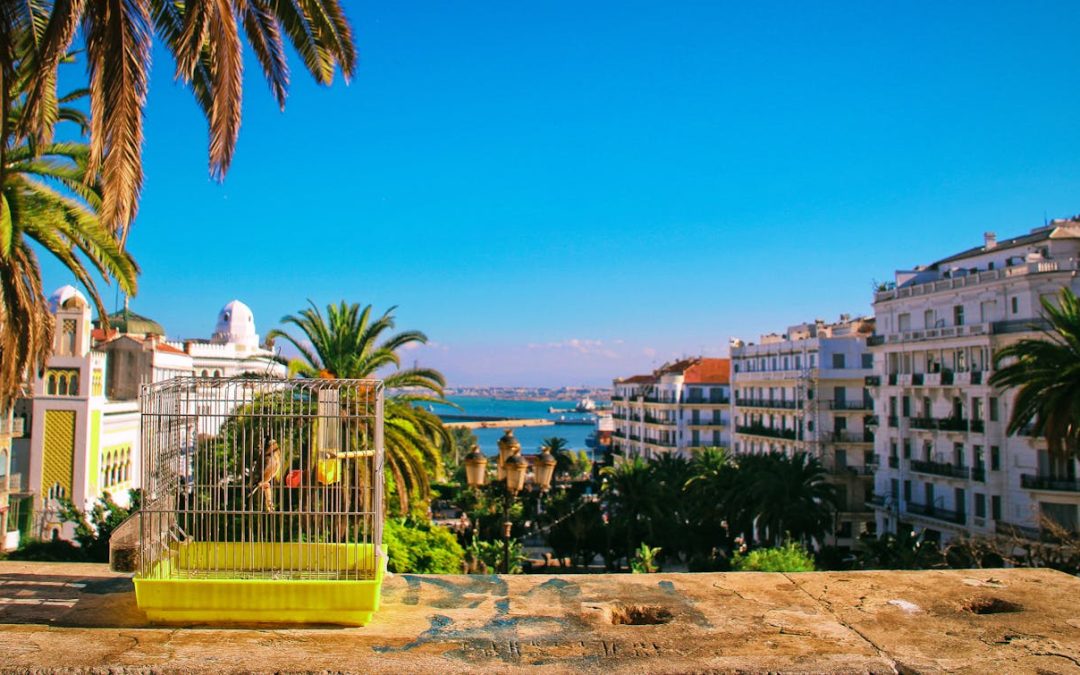What the data says: Algeria’s fastest speeds in 2025
As of 2024–2025, Algeria has made significant strides in improving internet speeds via fixed (broadband/fibre/FTTH) and mobile networks. Key findings:
-
Fastest average broadband (fixed) speeds in major Algerian cities (April 2024 – March 2025) are in the range of 40–60 Mbps download, with upload rates in the 20-30 Mbps range in the better-served locations. For example, in Ali Mendjeli, broadband speeds reach about 62.8 Mbps download / ~34.1 Mbps upload, with latency (ping) around 50 ms.
-
In Algiers, the broadband average is around 44.5 Mbps download / 24.2 Mbps upload with latency ~51 ms.
-
For mobile internet, the fastest download speeds in Algeria among providers are lower: in Q1 2025, Ooredoo recorded about 26.7 Mbps download with upload speeds ~10.6 Mbps and lowest ping among mobile providers of ~51 ms.
Additionally:
-
Algeria’s fixed broadband and mobile internet speeds have been rising. A report by Datareportal showed strong year-on-year progress in both fixed and mobile average speeds.
-
The national operator, Algérie Télécom, is pushing “Idoom Fibre” offerings that include ultra-high speed plans up to 1 Gbps for certain subscribers. For limited periods / special offers, promotions have delivered 1000 Mbps (1 Gbps) fiber services.
What is the fastest internet speed in Algeria?
Putting all that together:
-
For standard residential users, the fastest regularly available fixed broadband / fiber internet in better-served areas of Algeria is currently around 60 Mbps download (with ~30-35 Mbps upload) under good conditions. That seems to be among the top typical average speeds in 2025 across Algerian cities. (Ali Mendjeli being a top example.)
-
However, for those who opt into premium offers and fiber to the home (FTTH) / ultra-high speed fiber plans, 1 Gbps is achievable under specific offers by Algérie Télécom. These are limited in availability (regions where fiber infrastructure is present, and during promotional windows, or for certain types of subscriptions).
So, if you define “fastest” as what is reliably accessible to more users, it is in the ~60 Mbps download range in the top locations. If you define “fastest” as peak / promotional / ultra premium offers, then 1 Gbps is the high end in 2025.
Comparison: Algeria vs Regional & Global peers
-
Many developed countries have average broadband speeds several hundred Mbps; some have average fixed broadband speeds over 200-300 Mbps. Algeria is still catching up in many parts.
-
Among African nations, Algeria’s progress is notable, especially in deploying fiber and increasing backbone capacity. But there are still many countries in Africa with faster average speeds in certain cities (e.g. parts of South Africa, Kenya, Morocco, etc.).
-
For mobile speeds, Algeria’s 20-30 Mbps average download for top providers is good compared to many neighboring countries but lagging behind top mobile networks globally, many of which deliver 100 Mbps or more in urban areas with 5G.
What limits the speed & factors affecting availability
Several factors help explain why speeds vary, and why 1 Gbps is not yet the norm:
-
Infrastructure
-
Without fiber access, many areas still rely on older technologies (ADSL, VDSL, or mixed copper/fibre) which cap maximum speeds.
-
Deployment of fiber to the home (FTTH) is ongoing, but rollout takes time and investment, especially to reach suburban or rural zones.
-
-
Geographical & urban/rural divide
-
Cities (Algiers, Ali Mendjeli, etc.) benefit most from upgrades, while remote or less densely populated regions are slower.
-
-
Operator investment & policy
-
Algérie Télécom is the main fixed broadband provider; its policies, promotional offers, and investments hugely affect what speeds customers can access.
-
-
Hardware and end-user limitations
-
Even with fiber, if a user has an old router, or using WiFi not up to modern standards, or many devices contending for bandwidth, actual speeds can be much less.
-
Backhaul, peering, and congestion also affect latency and consistency.
-
-
Pricing & affordability
-
Higher speeds cost more; many users may opt for mid-range plans. Offers of ultra-high speed may not be accessible due to cost or lack of availability in certain areas.
-
What to expect going forward
Based on trends, here’s what likely will happen through the rest of 2025 and beyond:
-
Wider FTTH expansion: More homes being connected by fiber, particularly in urban and suburban areas. As fiber penetration increases, average broadband speeds will rise.
-
More 1 Gbps/ultra high speed offer rollouts: As infrastructure matures, more subscribers will have access to fiber packages offering 1 Gbps or more (for example in major cities).
-
Improved mobile networks: Possibly 5G or enhanced 4G/LTE-Advanced deployments will increase mobile speeds in cities.
-
Cost vs speed balance: The market may see more competitive pricing or promotional offers to attract users to high-speed packages.
Bottom line: Answering “What is the fastest internet speed in Algeria in 2025?”
-
Realistic fastest for many users: ~ 60 Mbps download / ~30 Mbps upload in well-served urban areas on fiber or good broadband.
-
Peak / premium offer speed: 1 Gbps download (fiber) for users who subscribe to premium fiber offers, where available.
